Cashews
Cashews are a type of nut that grows on cashew trees. They have a creamy texture and a sweet, buttery flavor. They are often used in cooking and baking, and they are also enjoyed as a snack. Cashews are rich in healthy fats, vitamins, and minerals, and are a popular ingredient in many cuisines around the world.
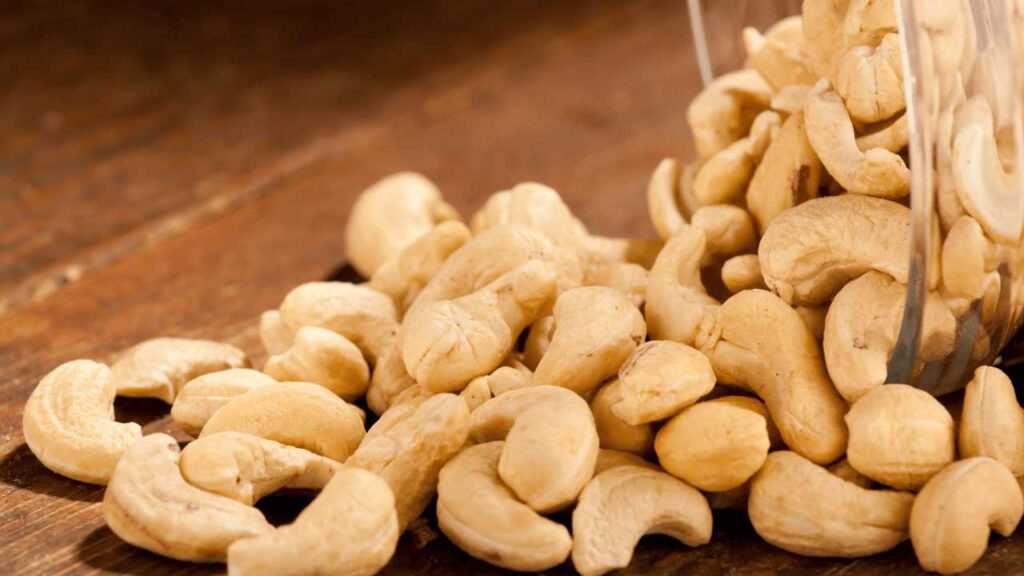
Nutrition Value
| Water | 5% |
| Fats | 44% |
| Carbohydrates | 30% |
| Proteins | 18% |
| Vitamins & Minerals | 3% |
How Cashews Grow?
Cashews grow on cashew trees, which are native to tropical regions like Brazil and India. The cashew tree produces a fruit called a cashew apple, and the cashew nut is actually the seed that grows at the bottom of the fruit. After the cashew apple ripens, it is harvested, and the nut is carefully extracted. The nut is then roasted to remove the toxic shell, revealing the edible cashew inside. This process is fascinating.
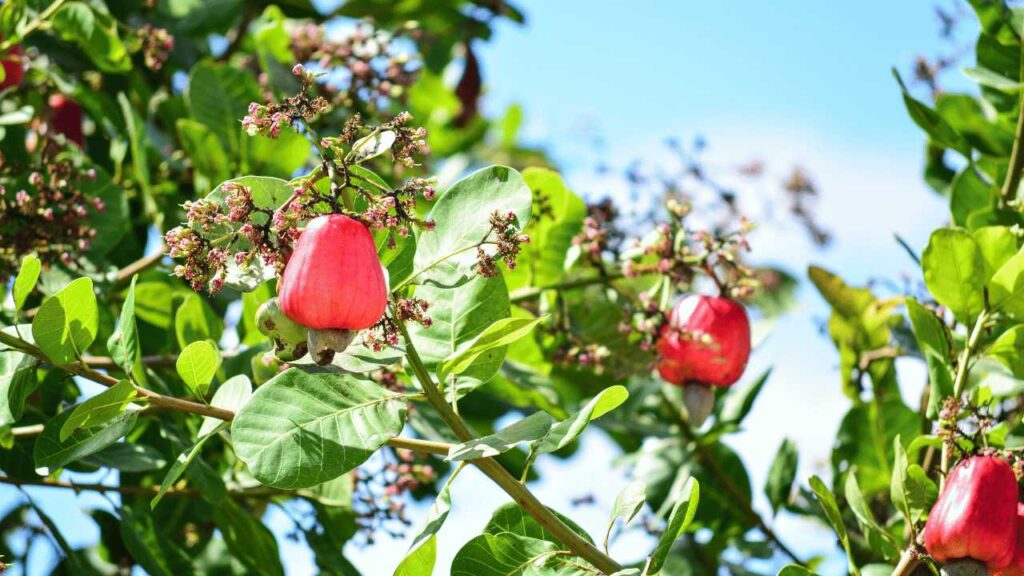
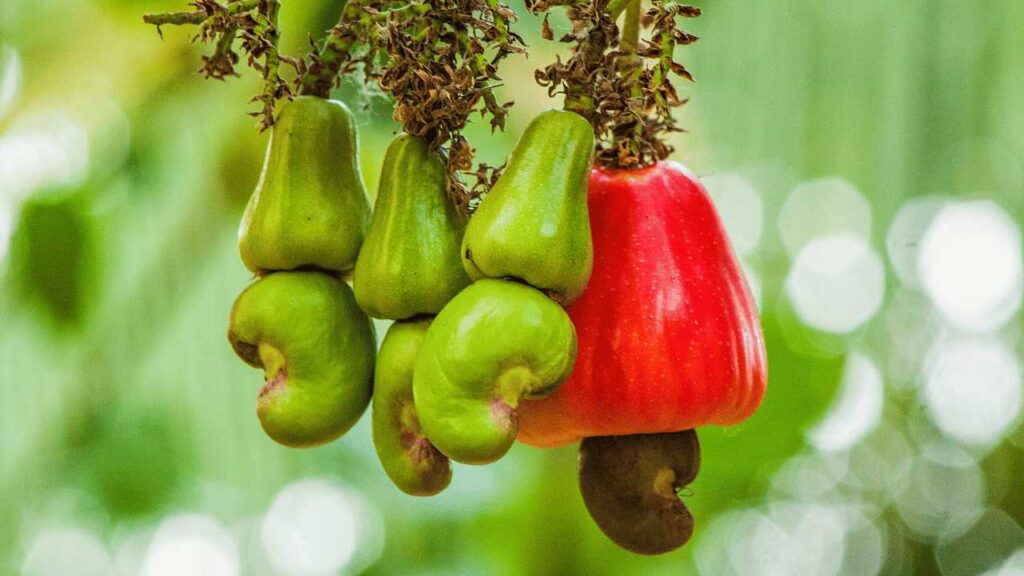
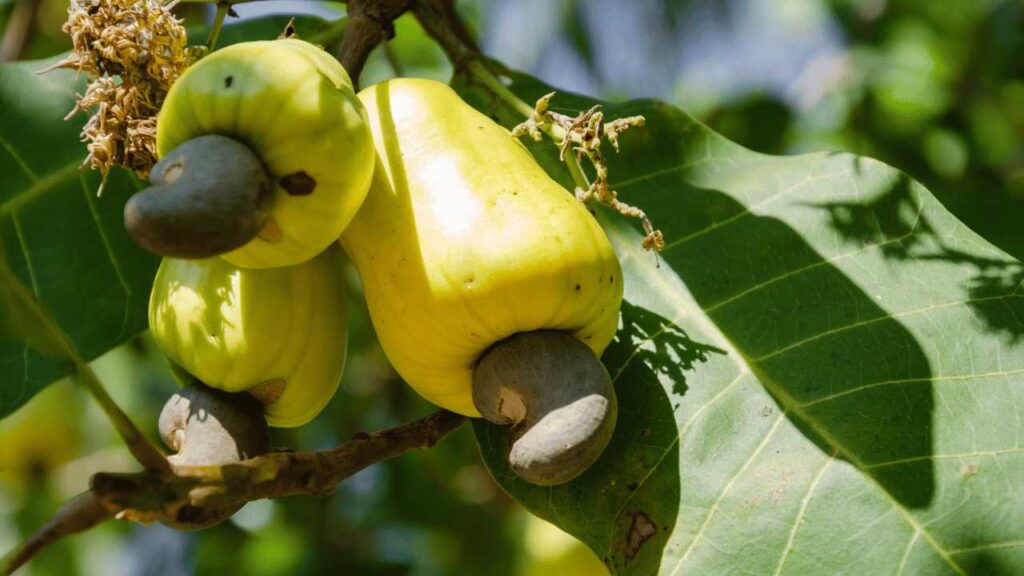
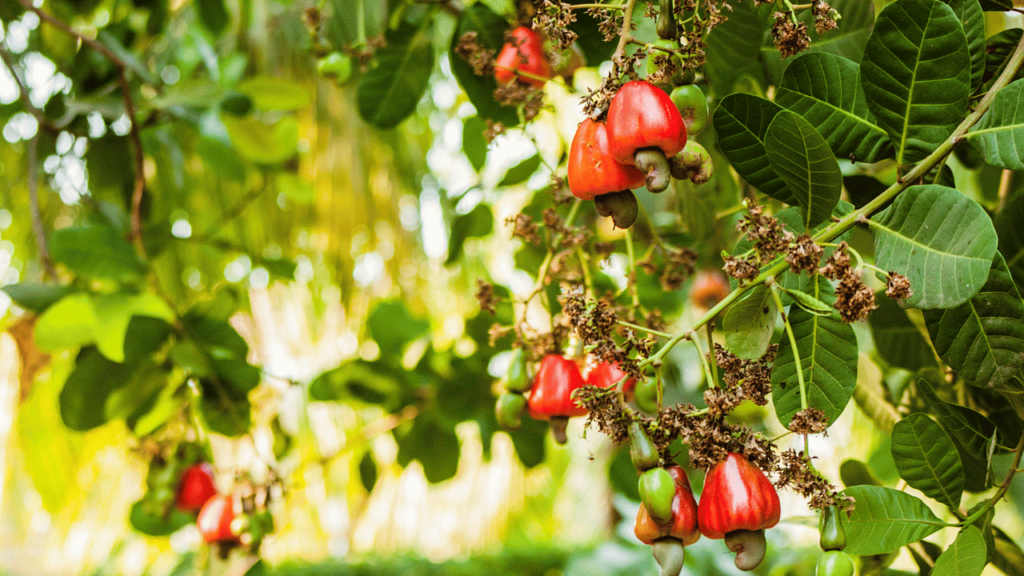
Cultivation Of Cashews
Cashews are primarily found in tropical regions, particularly in countries such as Brazil, India, Vietnam, Nigeria, and Ivory Coast. These countries have favorable climates for cashew tree cultivation. Brazil is the largest producer of cashews, followed by India. Cashew trees require warm temperatures, well-drained soil, and a good amount of sunlight to thrive. The availability of these conditions in these countries makes them ideal for cashew production.
Cashews are also grown in other countries like Tanzania, Mozambique, and Indonesia. It’s fascinating to see how different regions contribute to the global production of this delicious nut.
Types Of Cashews
There are different types of cashews based on their processing and preparation. Some common types include:
- Raw Cashews: These are cashews that have not been roasted or salted. They have a mild, creamy flavor and are often used in cooking and baking.
- Roasted Cashews: These cashews are roasted to enhance their flavor and give them a slightly crunchy texture. Roasted cashews can be enjoyed as a snack or used in various recipes.
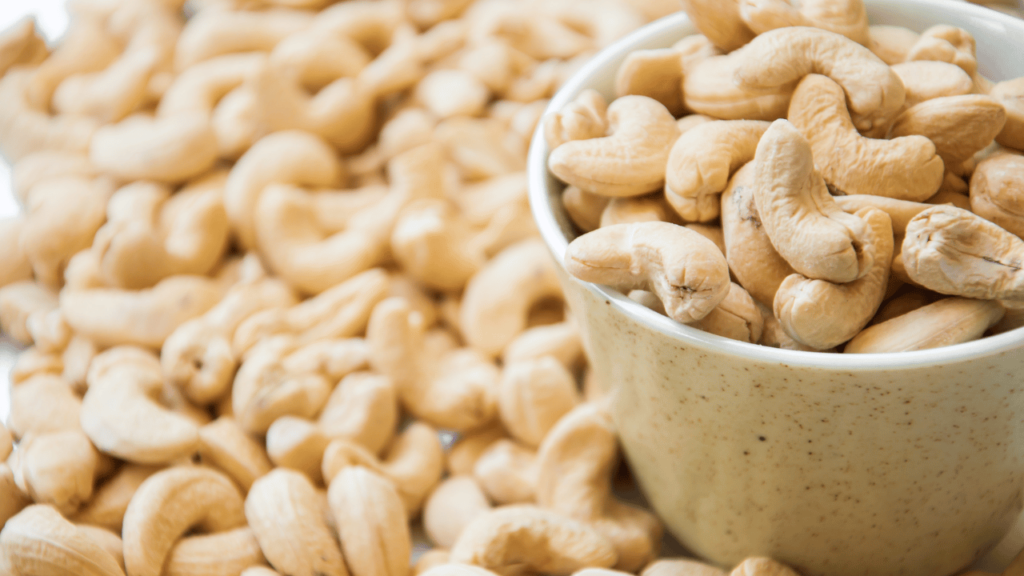



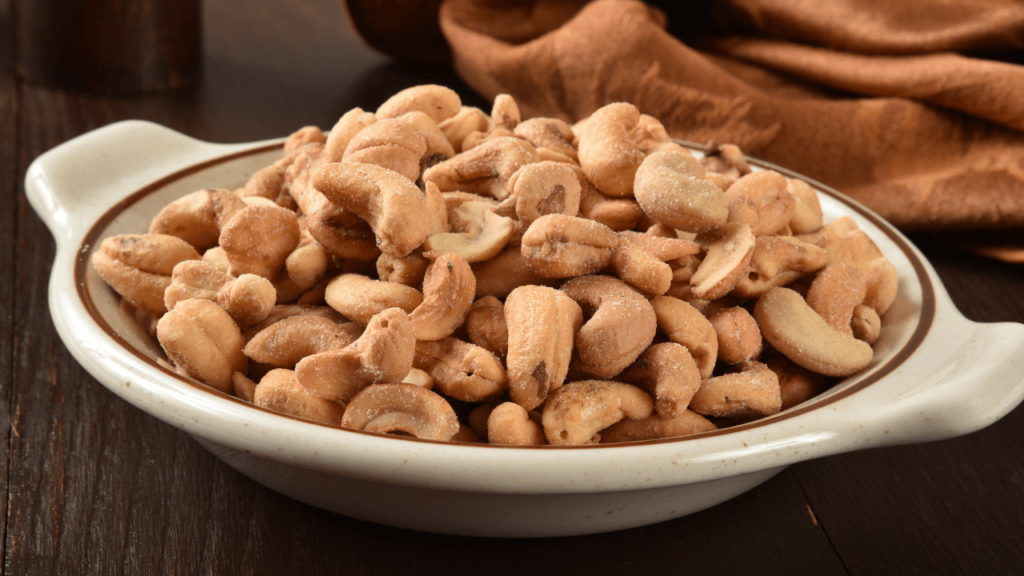
- Salted Cashews: These cashews are roasted and then sprinkled with salt, adding a savory taste to the nut. They are a popular choice for snacking.
- Honey Roasted Cashews: These cashews are coated with a sweet honey glaze and then roasted to create a delicious combination of sweet and savory flavors.
- Spicy Cashews: These cashews are seasoned with spices such as chili powder, paprika, or cayenne pepper, giving them a fiery kick. They are perfect for those who enjoy a bit of heat in their snacks.
These are just a few examples, and there may be other variations available as well. It’s always fun to explore different types of cashews and see which ones you enjoy the most.
Benefits Of Cashew
Cashews offer numerous health benefits, including:
- Heart Health: Cashews are rich in monounsaturated fats, which can help lower bad cholesterol levels and reduce the risk of heart disease.
- Nutrient Powerhouse: Cashews are packed with essential vitamins and minerals. They are a good source of vitamin E, which acts as an antioxidant and helps protect cells from damage. They also provide magnesium, which is important for bone health and muscle function, and zinc, which supports immune function and wound healing.
- Weight Management: Despite being calorie-dense, cashews can actually aid in weight management. The combination of healthy fats, protein, and fiber in cashews helps you feel fuller for longer, reducing the likelihood of overeating.
- Brain Health: Cashews contain nutrients like magnesium, vitamin E, and antioxidants that support brain health and cognitive function. They may help improve memory and protect against age-related cognitive decline.
- Digestive Health: Cashews are a good source of dietary fiber, which promotes healthy digestion and helps prevent constipation.
- Energy Boost: The healthy fats and protein in cashews provide a sustained source of energy, making them a great snack option for an energy boost throughout the day.
- Antioxidant Properties: Cashews contain antioxidants like vitamin E and polyphenols, which help reduce oxidative stress and inflammation in the body.
Remember, while cashews offer numerous health benefits, moderation is key due to their high calorie content. Enjoy them as part of a balanced diet for maximum benefits.
Dishes Of Cashews
Cashews are a versatile and delicious ingredient found in many dishes across different cuisines. Here are some famous dishes that feature cashews:
- Cashew Chicken: This is a popular Chinese dish that combines tender chicken, crunchy cashews, and a savory sauce.
- Cashew Curry: A flavorful curry dish made with cashews, spices, and a creamy sauce. It’s commonly found in Indian and Thai cuisine.
- Cashew Butter: Similar to peanut butter, cashew butter is a creamy and nutty spread that you can have on toast, sandwiches or as a dip for fruits and veggies.
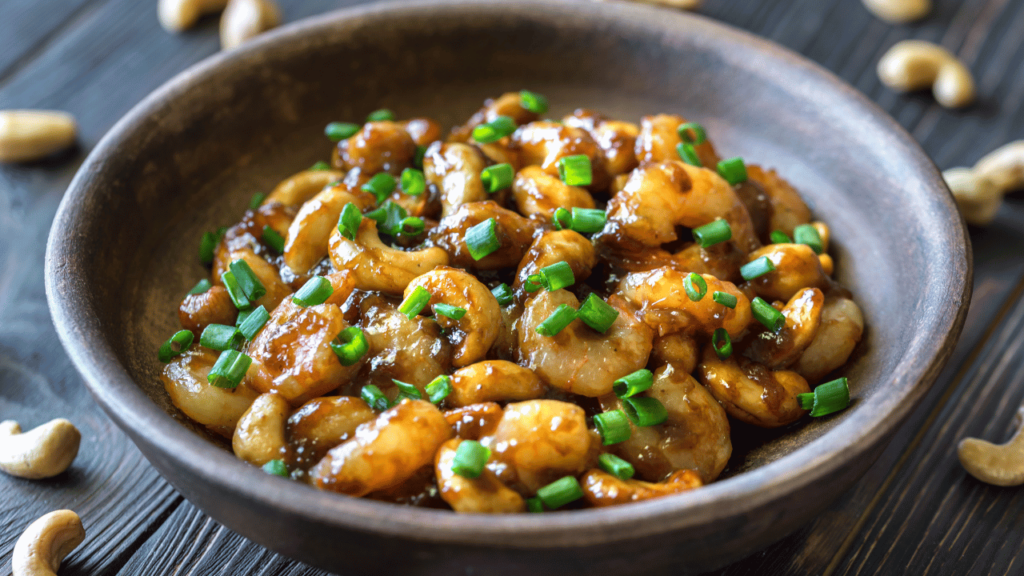
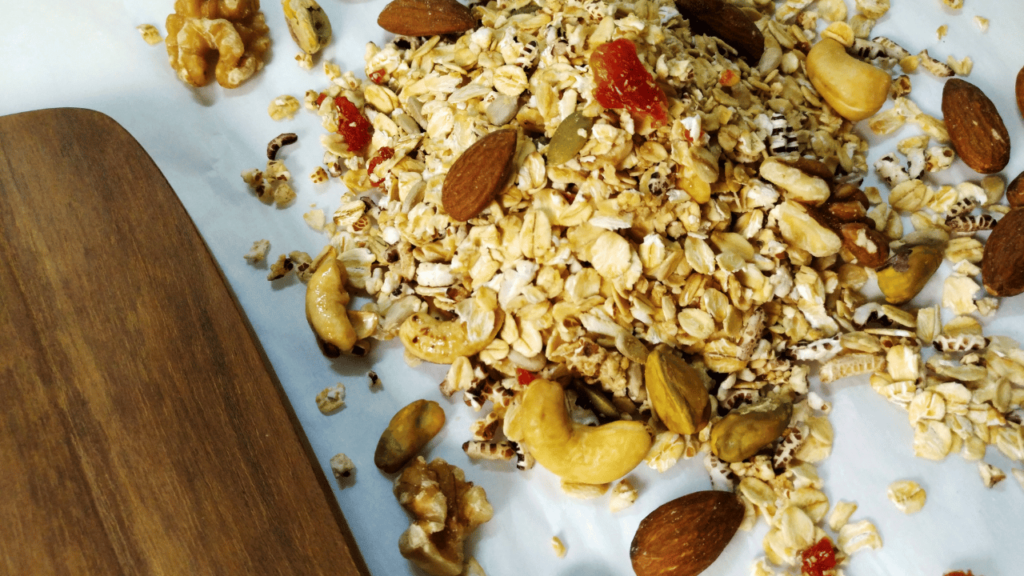

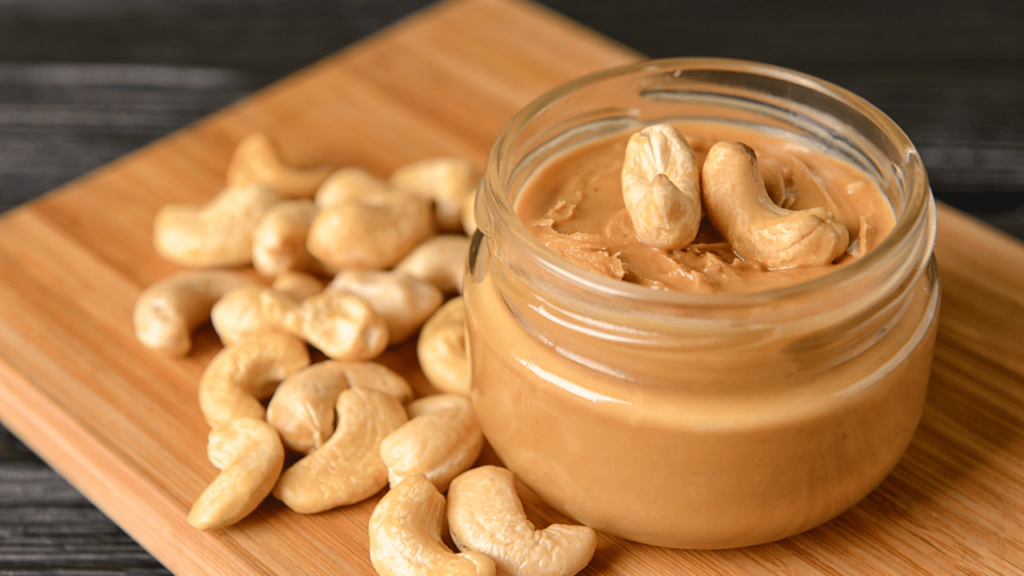

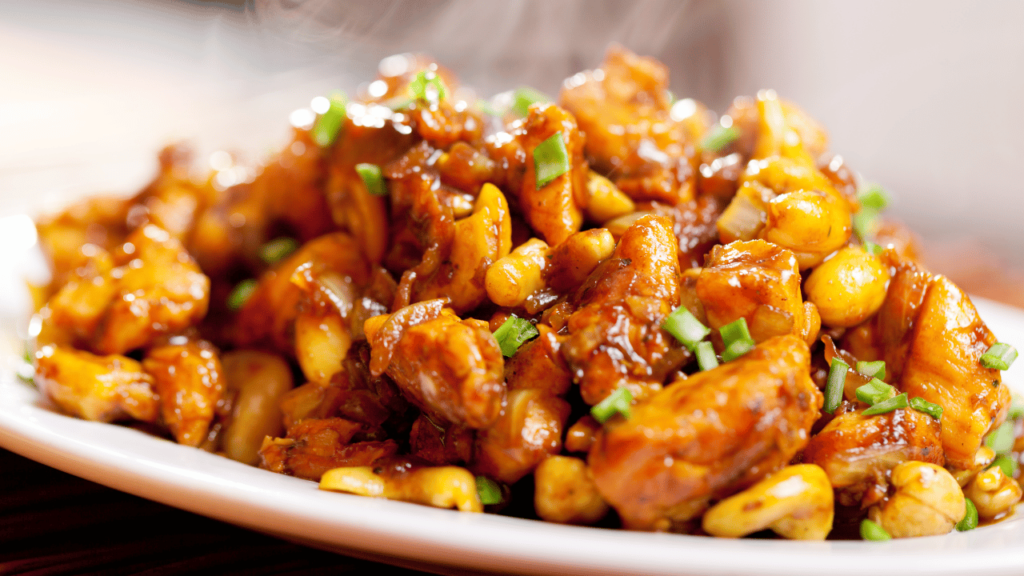
- Cashew Stir-Fry: A quick and easy stir-fry dish that includes a colorful mix of vegetables, cashews, and your choice of protein.
- Cashew Cheesecake: A luscious dessert made with a creamy cashew-based filling, often vegan-friendly and gluten-free.
- Cashew Granola: A crunchy and nutritious snack made with rolled oats, nuts, seeds, and of course, cashews.
Side Effects Of Cashew
While cashews are generally safe to eat, some people may experience side effects or allergic reactions. Here are some potential side effects:
- Allergic Reactions: Cashews belong to the tree nut family, and some people may have allergies to tree nuts. Allergic reactions can range from mild symptoms like itching or hives to more severe reactions like difficulty breathing or anaphylaxis. If you have a known nut allergy, it’s best to avoid cashews.
- Digestive Issues: Cashews are high in fiber, which can cause digestive discomfort such as bloating, gas, or diarrhea if consumed in excess. It’s important to consume them in moderation and drink plenty of water to help with digestion.
- Weight Gain: Cashews are calorie-dense and high in fat, so consuming them in large quantities may contribute to weight gain if not balanced with an overall healthy diet and lifestyle.
- Oxalate Content: Cashews contain oxalates, which can contribute to the formation of kidney stones in susceptible individuals. If you have a history of kidney stones, it’s advisable to moderate your intake of cashews.
It’s important to remember that these side effects are not common for most people, and cashews can be a nutritious and delicious addition to a balanced diet. However, if you have any concerns or specific health conditions, it’s always best to consult with a healthcare professional.